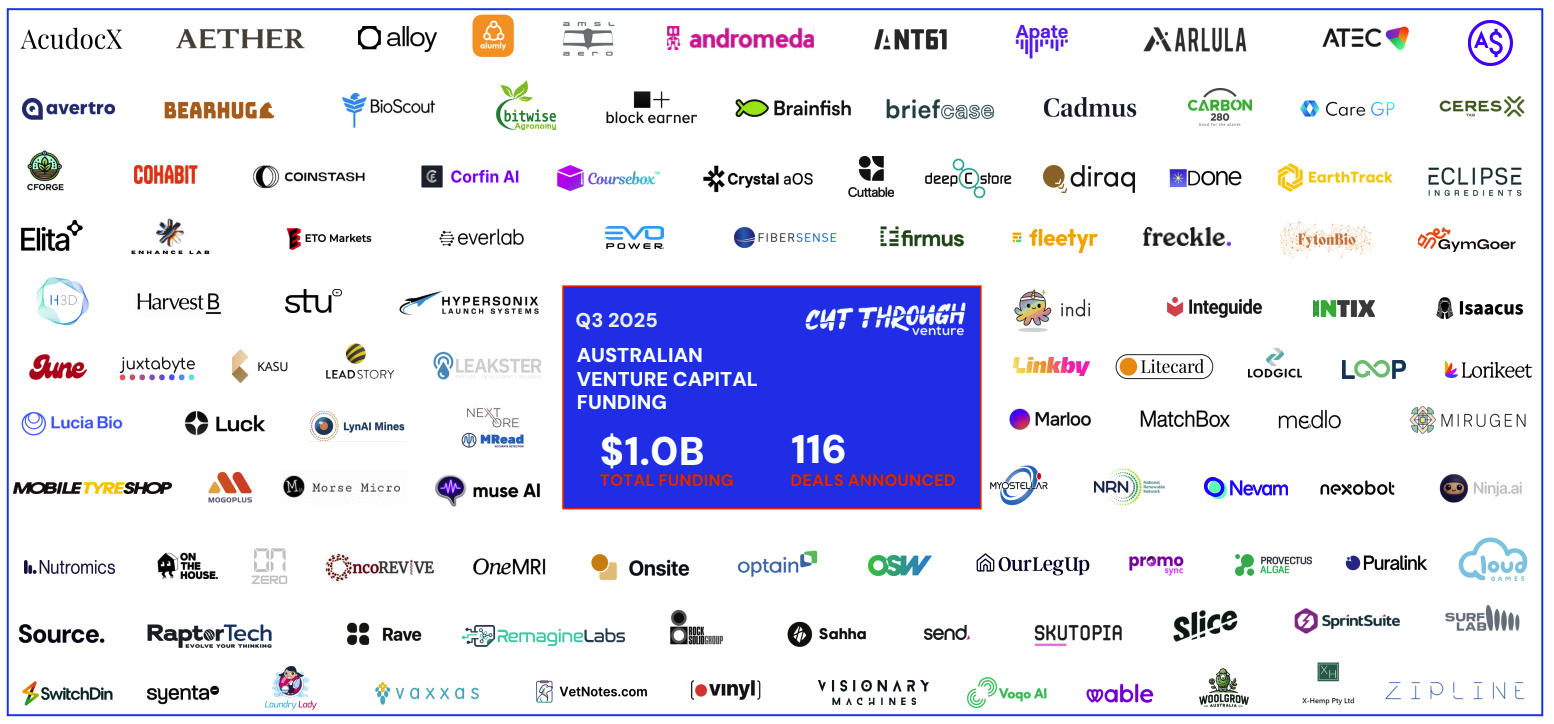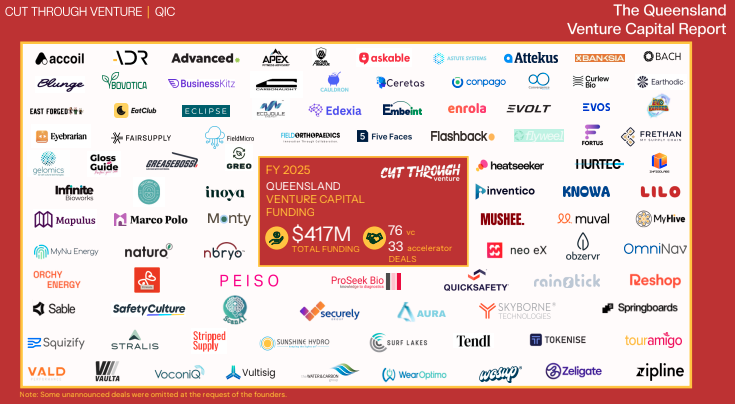
.png)

Cut Through Venture was proud to support Giant Leap's Impact Benchmark Report 2025, the most detailed quantitative snapshot of how impact-focused Australian startups define, measure, and operationalise their social and environmental missions. Informed by a comprehensive survey of 80+ impact startups and funds, the report reveals how founders are navigating growth, metrics, capital, and accountability in a shifting investment landscape.
Now in its second edition, the report sets a benchmark for how the sector is evolving and where opportunities lie to strengthen transparency and alignment in impact-led innovation.
Founder Motivations and Structures
83% of startups said the primary reason for pursuing impact was personal motivation or values alignment.
73% self-identify as impact-led, but only 40% use external frameworks (e.g., SDGs or B Corp).
22% operate as for-purpose companies (B Corp or charity), while the majority remain for-profit structures.
Impact Areas and Sector Spread
Top impact focus areas: Climate (50%), Health (41%), Education (31%), First Nations inclusion (13%).
44% of respondents address more than one impact domain simultaneously.
80% cite a social or environmental mission as central to their commercial model.
How Startups Define and Measure Impact
61% of founders reported having a clear theory of change.
41% of startups track outcomes quarterly; 29% do so annually.
Only 27% of startups use a dedicated impact measurement framework.
The most common metrics relate to:
- User reach and access
- CO₂ emissions avoided or offset
- Community engagement
- Mental and physical health improvements
Accountability and Reporting
Just 36% of startups publish an impact report.
Among those that do:
- 82% produce it internally
- 64% use it in fundraising conversations
- 21% include verified third-party data
Investment Sentiment and Experience
63% of startups say it’s difficult to raise capital as an impact business.
Top challenges cited:
- Investor misunderstanding of impact business models.
- Perception of mission-market trade-offs
Only 16% of respondents felt investors valued impact on par with financial returns.
Investor Types and Funding Rounds
Most common capital sources:
- Angel investors (70%)
- Impact funds (49%)
- Government grants (43%)
44% of respondents have raised a Seed or Pre-Seed round.
Average raise sizes remain significantly lower than for mainstream tech startups.
Gender, Diversity, and Equity
60% of respondent startups have at least one female founder.
26% of startups are led by female-only founding teams.
Only 31% track diversity and inclusion metrics internally.
Most teams cite a need for more representation among investors and board members.
Opportunities to Strengthen the Ecosystem
Founders want:
- Better access to impact-aligned capital.
- Tools for standardized measurement.
- More peer learning and cross-sector collaboration
Investors are increasingly seeking ways to align due diligence with both financial and impact performance.
Policy initiatives could support growth by de-risking early-stage funding and incentivizing measurable outcomes.
The Impact Benchmark Report 2025 provides rare, data-backed visibility into the priorities, constraints, and progress of Australia’s most mission-driven startups. As the ecosystem matures, clear measurement and transparent reporting will be central to building trust and scaling solutions that matter.
Download the Full Report
Explore the full findings, data tables, and founder insights in the Impact Benchmark Report 2025.
.png)





